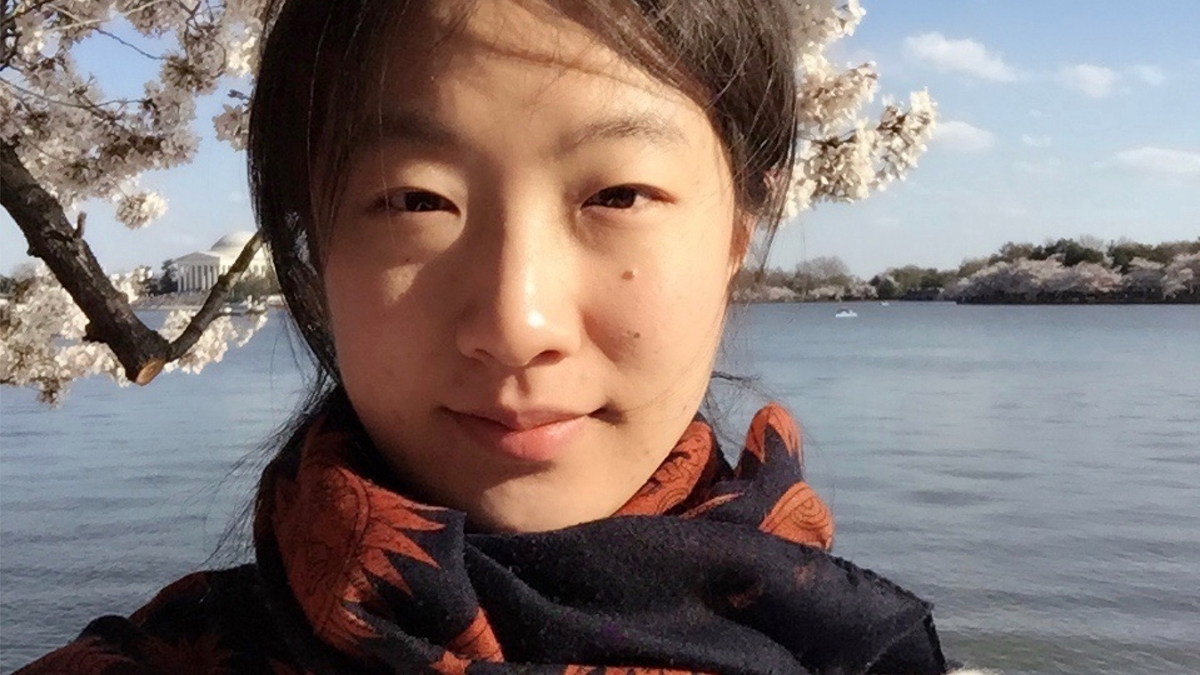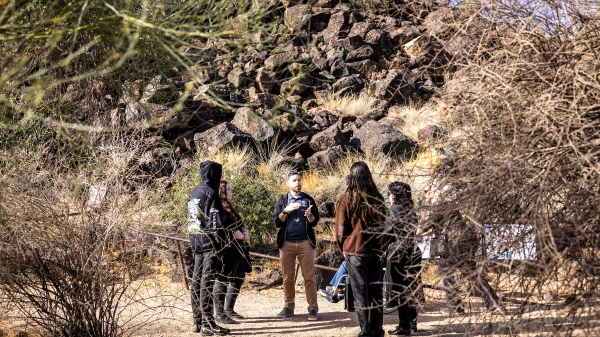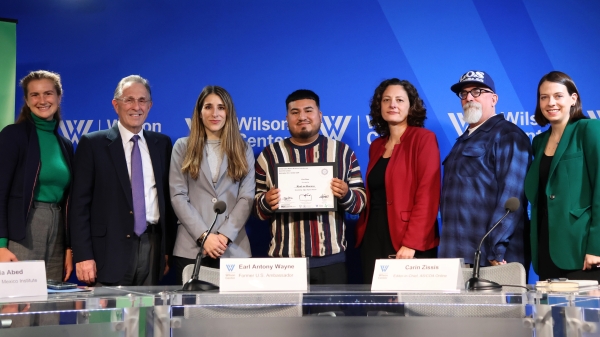Gender studies research highlights female factory workers in China

Anzi Dong is a PhD candidate in gender studies at the School of Social Transformation at ASU. Photo courtesy Anzi Dong
After Anzi Dong completed her undergrad internship at a social work organization in China, she decided to research the lived experiences of Chinese migrant women of rural communities as a focus for her graduate academic journey.
Dong came to Arizona State University after earning her master’s degree in women’s and gender studies at George Washington University and is now a fourth-year PhD candidate in gender studies at the School of Social Transformation.
Her dissertation, a community-based participatory research project called “Care Enough to Act: Migrant Women’s Community-based Organizing in Suburban Shenzhen, China” focuses on a migrant women-led nonprofit organization in an industrial district in Shenzhen.
These women have over a decade of work experience across various industries — from manufacturing to service. Many once worked in export-oriented factories responsible for producing commodities, such as phones, clothing and footwear that were sold worldwide.
“My work focuses on their unique approach to migrant women’s collective empowerment and capacity building,” Dong said. “This group of women works to build a gender-safe, gender-inclusive space within the migrant workers’ neighborhood, and in doing so, to empower migrant women who are or might experience all kinds of gender discrimination and gender-based violence in the workplace and within their community.”
Her work highlights their voices, insights, collective wisdom and experiential knowledge.
Through ethnographic fieldwork and archival studies, and daily engagement — virtually and in person with the group’s community organizations — Dong hopes to display the women’s collective effort in creating a mutual aid network to meet the community’s demands.
Dong chose ASU to get additional support for her research and has received guidance from professors from the School of Social Transformation.
“The school is interdisciplinary,” she said. “Although I’m in the gender studies program, one of my dissertation committee co-chairs is a justice studies professor. They all provide me with different perspectives, constructive feedback and encourage me to think about these issues from different angles.”
Seeking fellowships and funding
Professors and faculty have encouraged her to pursue outside support through fellowships and funding, including the competitive WW Dissertation Fellowship in Women’s Studies.
The fellowship, offered through the Institute for Citizen and Scholars, is awarded to students conducting doctoral dissertations related to women's and gender studies.
“The application process is challenging because it requires great patience and dedication,” Dong said. “You will have to build your application portfolio and work on your research statement over and over again. Fortunately, faculty across the School of Social Transformation offers me great mentorship throughout the process.”
Dong joins a group of 600 scholars who have received the fellowship in the last 47 years to help complete dissertations addressing issues revolving around women and gender studies.
Dissertation is 'a collective effort'
As a PhD candidate, Dong knows her dissertation is the first step in her academic journey.
“The end goal of my dissertation is to get a good start on experiencing how to do research with communities,” she said. “This is just the beginning. I want to make this research a lifetime dedication and build a sustainable, reciprocal and collaborative relationship with communities outside the university.
“How can I maintain this project? How can I carry on this project even afterward? I am determined to continually work with this group of women and bring this ongoing project into my future faculty position at a university or college.”
While this project focuses on the experiences and impacts of migrant women and building a lifetime of passionate work for herself, Dong hopes to help support current and future PhD candidates conducting their research by sharing her experience.
“Dissertation is an ongoing process and I can never make it through without my peers and cohorts’ support,” she said. “Embrace peer reviews, organize cohort-based writing groups, engage in mutual mentorship, and offer your generous and genuine feedback. Working on a dissertation is never a personal journey. It’s a collective effort. Do all you can to support your cohorts.”
More Arts, humanities and education

Petroglyph preserve celebrates 30th anniversary with ancient, modern tales
The Deer Valley Petroglyph Preserve provides a beautiful walk through a pristine desert where chuckwalla lizards are as plentiful…

Kaleidoscope short film contest inspires powerful binational filmmaking in its second year
“We come to this country not to steal anybody’s jobs but to take advantage of the opportunities that the rest ignore. We’ve been…

ASU's Neal Lester reflects on life, death of poet Nikki Giovanni
When Neal Lester heard on Monday that poet and activist Nikki Giovanni had died, the news hit hard.Lester, the founding director…